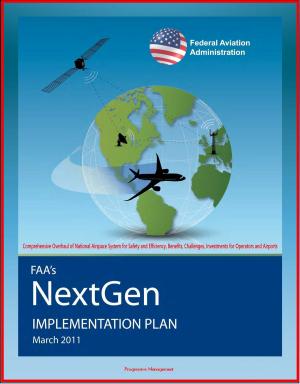National Defense Intelligence College Paper: Courting a Reluctant Ally - An Evaluation of U.S./UK Naval Intelligence Cooperation, 1935-1941, Franklin Roosevelt, OSS, Commander Ian Fleming
Nonfiction, History, Military, Other, Social & Cultural Studies, Political Science, International| Author: | Progressive Management | ISBN: | 9781310684173 |
| Publisher: | Progressive Management | Publication: | December 14, 2013 |
| Imprint: | Smashwords Edition | Language: | English |
| Author: | Progressive Management |
| ISBN: | 9781310684173 |
| Publisher: | Progressive Management |
| Publication: | December 14, 2013 |
| Imprint: | Smashwords Edition |
| Language: | English |
This unique and informative paper was produced by the National Intelligence University / National Defense Intelligence College. Topics and subjects: Captain Alan Kirk, Commander Ian Fleming, Franklin Roosevelt, ALUSNA London, ONI, NID, MID, SOE, DCI, HUMINT, SIGINT, PURPLE, COMINT, codebreaking, OSS, cryptanalytics, OPINTEL, MAGIC, SIS, MIG, Captain Albert Niblack, ORANGE, anti-colonialism, Wilson idealism, Mesopotamia (Iraq), London Naval Conference of 1935, Ingersoll mission 1938, Secretary of the Navy Frank Knox, Admiral Harold R. Stack, MI5, British Security Coordination (BSC), Colonel William "Wild Bill" Donovan, Henry Tizard mission, Joint Bailey committee, ABC-1 talks, Sirkov mission, Bletchley Park.
1. The Status of Intelligence in the U.S. and Great Britain * 2. U.S.-UK Relations, 1914-1935: From Cooperation to Competition * 3. U.S.-UK Relations, 1935-1939: The Beginnings of a Strategic Rapprochement * 4. Key U.S. Policymakers and Their Attitudes toward Cooperation * 5. ALUSNA London and the British NID: January 1939-March 1941 * 6. Courting the Reluctant Ally: June 1940-March 1941 * 7. The Limits of Exchange: March 1941-December 1941 * 8. Evaluation * Glossary * Appendixes * A. A Note on Sources * B. Major Events in U.S.-UK Intelligence Cooperation
To most Americans alive today, the close alliance between the United States and Great Britain seems to be a "natural" thing, perhaps the inevitable expression of what Winston Churchill referred to as the "special relationship" occasioned by "underlying cultural unity." There are now few among us whose memories go back to the period between the two world wars and who would be able to point out that, commonalities of language and culture notwithstanding, today's special relationship between the United States and Great Britain is a quite recent phenomenon, really dating only from the 1940-41 timeframe.
For much of the two and a quarter centuries of our independence, relationships with Great Britain have been cool or even strained. Cooperation and intelligence sharing with the British in World War I was late in coming and limited in scope. At the end of the war, it slowed to an almost imperceptible trickle, and was very slow to resume. The author outlines the factors accounting for the reluctance of both sides to share information and the underlying feeling of competitiveness between the Royal Navy and the U.S. Navy during the interwar years. This had moderated by the outbreak of hostilities in 1939, but within a year two different dynamics had arisen: the American concern after the fall of France that the British might be quickly defeated, and thus US technical and intelligence information compromised; and the British single-minded focus on bringing America into the war and gaining access to our vast technological and industrial resources. To further their goals, the British were willing to provide the United States with virtually unlimited access to British secrets—technological as well as intelligence — even without any quid pro quo. Their strategy worked. The author outlines how the exchange of information started as a trickle, turned into a flood, and endures to this day.
A number of books have been written about this wartime intelligence cooperation, but this work is the first that provides significant detail on the rocky road toward cooperation that both navies traversed through the 1920s and 1930s. The author has tapped a number of original sources and archives which had not previously been plumbed to provide a new perspective on recent, but largely unappreciated naval history. The reader may find himself reflecting that relationships which appear so "natural" today, were not always that way, and recalling the words of Chaim Herzog, who as President of Israel, declared that nations don't have permanent friends or enemies, only "permanent interests."
This unique and informative paper was produced by the National Intelligence University / National Defense Intelligence College. Topics and subjects: Captain Alan Kirk, Commander Ian Fleming, Franklin Roosevelt, ALUSNA London, ONI, NID, MID, SOE, DCI, HUMINT, SIGINT, PURPLE, COMINT, codebreaking, OSS, cryptanalytics, OPINTEL, MAGIC, SIS, MIG, Captain Albert Niblack, ORANGE, anti-colonialism, Wilson idealism, Mesopotamia (Iraq), London Naval Conference of 1935, Ingersoll mission 1938, Secretary of the Navy Frank Knox, Admiral Harold R. Stack, MI5, British Security Coordination (BSC), Colonel William "Wild Bill" Donovan, Henry Tizard mission, Joint Bailey committee, ABC-1 talks, Sirkov mission, Bletchley Park.
1. The Status of Intelligence in the U.S. and Great Britain * 2. U.S.-UK Relations, 1914-1935: From Cooperation to Competition * 3. U.S.-UK Relations, 1935-1939: The Beginnings of a Strategic Rapprochement * 4. Key U.S. Policymakers and Their Attitudes toward Cooperation * 5. ALUSNA London and the British NID: January 1939-March 1941 * 6. Courting the Reluctant Ally: June 1940-March 1941 * 7. The Limits of Exchange: March 1941-December 1941 * 8. Evaluation * Glossary * Appendixes * A. A Note on Sources * B. Major Events in U.S.-UK Intelligence Cooperation
To most Americans alive today, the close alliance between the United States and Great Britain seems to be a "natural" thing, perhaps the inevitable expression of what Winston Churchill referred to as the "special relationship" occasioned by "underlying cultural unity." There are now few among us whose memories go back to the period between the two world wars and who would be able to point out that, commonalities of language and culture notwithstanding, today's special relationship between the United States and Great Britain is a quite recent phenomenon, really dating only from the 1940-41 timeframe.
For much of the two and a quarter centuries of our independence, relationships with Great Britain have been cool or even strained. Cooperation and intelligence sharing with the British in World War I was late in coming and limited in scope. At the end of the war, it slowed to an almost imperceptible trickle, and was very slow to resume. The author outlines the factors accounting for the reluctance of both sides to share information and the underlying feeling of competitiveness between the Royal Navy and the U.S. Navy during the interwar years. This had moderated by the outbreak of hostilities in 1939, but within a year two different dynamics had arisen: the American concern after the fall of France that the British might be quickly defeated, and thus US technical and intelligence information compromised; and the British single-minded focus on bringing America into the war and gaining access to our vast technological and industrial resources. To further their goals, the British were willing to provide the United States with virtually unlimited access to British secrets—technological as well as intelligence — even without any quid pro quo. Their strategy worked. The author outlines how the exchange of information started as a trickle, turned into a flood, and endures to this day.
A number of books have been written about this wartime intelligence cooperation, but this work is the first that provides significant detail on the rocky road toward cooperation that both navies traversed through the 1920s and 1930s. The author has tapped a number of original sources and archives which had not previously been plumbed to provide a new perspective on recent, but largely unappreciated naval history. The reader may find himself reflecting that relationships which appear so "natural" today, were not always that way, and recalling the words of Chaim Herzog, who as President of Israel, declared that nations don't have permanent friends or enemies, only "permanent interests."















